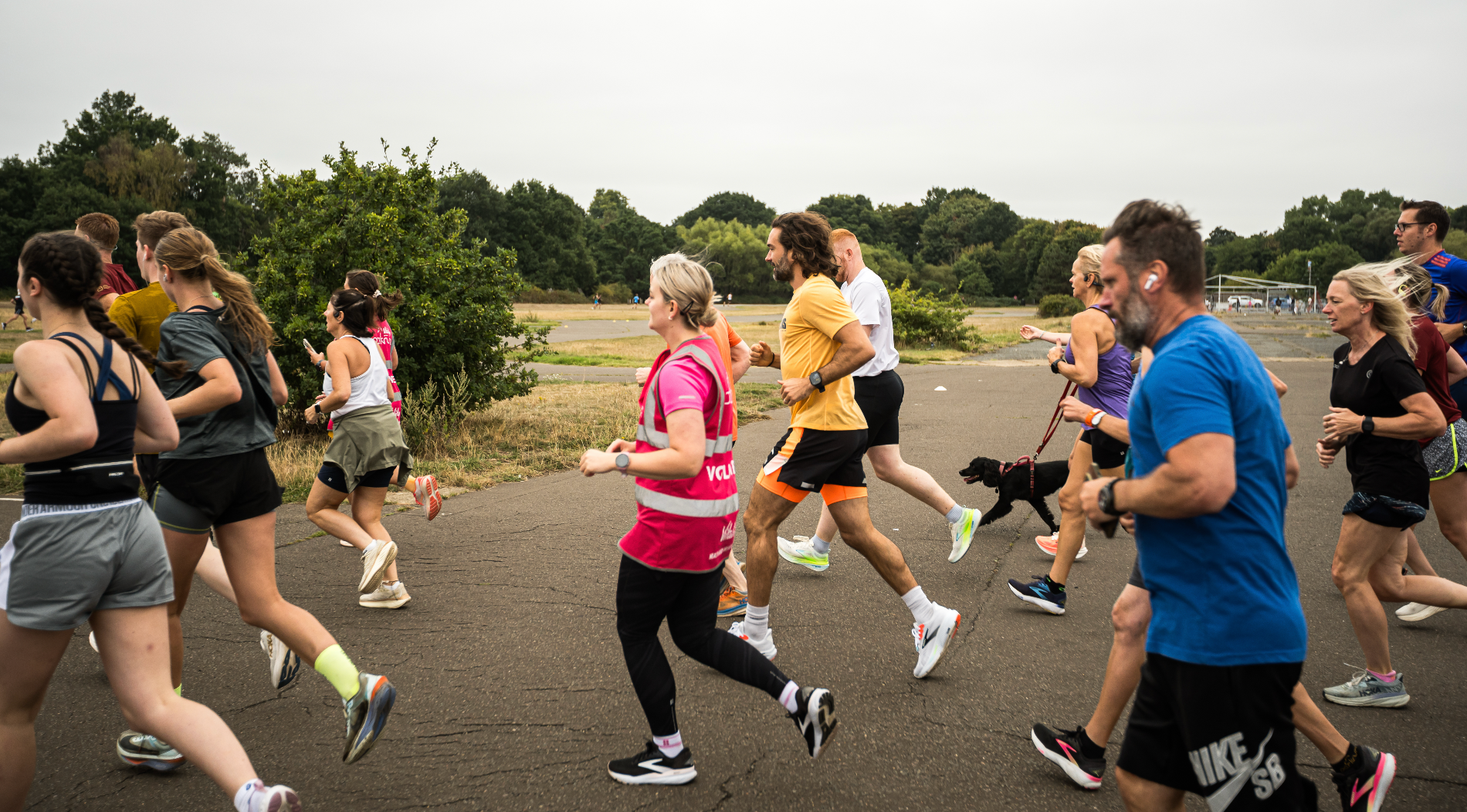“After a month, I’d lost half a stone and my pain lessened”
One year on The Body Coach app – and how it changed this woman's life.
Sign up for an annual subscription to The Body Coach app for just £69.99 (usually £89.99)

Running is a super simple way to move your body that’s completely free. You don’t need any equipment, you don’t need a gym membership, and you don’t need fancy gear.
But it can still feel daunting (and even uncomfortable) when you first give it a go. The good news is that you don’t have to be really fast or fit to be a “runner”, you just have to be willing to take that first step.
There’s a few things worth thinking about if you’re getting started. We spoke to Danny Mackey, an expert running coach and the head coach and founder of the Brooks Beasts Track Club, and Josh Kerr, a seasoned runner and 2024 Olympic Silver medallist, to share their advice.
One of the biggest mistakes beginners make when they first start running is doing too much too soon, says running coach Danny Mackey. “Our aerobic system usually progresses before our muscles, tendons and bones do when running,” he explains. “So I tell new runners to start easy, even if that means 3-4 weeks of short runs and walks to get their bodies prepared.”
Danny suggests starting with easy, slow runs split up by walks. That could be one minute running, one minute walking – and repeating that six times, he suggests. “Do that for three days then bump it up by two minutes. Then start increasing the duration of the run segment.”
Think of the first few weeks as laying a foundation. Short, easy jogs mixed with plenty of walking are the best way to build stamina. “Keep it consistent and don’t compare yourself to anyone else, the journey is yours,” adds Josh Kerr, a British runner who has competed in the Olympics.
Speed, and knowing how fast or slow to go, can be tricky when you’re just starting out. “If you can’t speak a word because you’re breathing too hard, then that’s a good indicator to slow down a touch,” says Danny. Running is a long game. Try to jog/run at a conversational pace that feels comfortable.
“Consistency is key,” he adds. “That’s why starting slow and conservative is huge, you can always do more if you have started too conservatively. Using your breathing rate as your intensity gauge is a great place to start.”
Often, the hardest part of running often isn’t the run itself, it’s showing up consistently. Building running into your routine works best when it feels manageable and flexible.
Whether you’re in a gym on a treadmill, or running around where you live, both are totally fine when you’re starting out, says Danny. “If I had to pick a third option, it would be a soft surface like a trail or grass to reduce impact.”
“When you start out, pick a health or performance goal,” suggests Danny, “and track your progress each week. Running is such a simple yet impactful form of mental and physical exercise I guarantee you’ll see the results you aim for the longer you stay with the sport.”
Use time and distance to start as a way to measure progress to begin with, he suggests.
But don’t worry if you don’t see results immediately. Josh Kerr, a British runner who has competed in the Olympics, says he wished he knew as a beginner that it takes years to really build strength and speed. “If you stick at it and don’t panic, the results will come,” he says.
“Discipline beats motivation. The days you don’t feel like running are often the sessions that count the most.”
Stretching, warming up, and cooling down don’t need to be complicated. A five-minute walk before you start and a few gentle stretches afterwards are enough to keep your body feeling good. Over time, you can experiment with different warm-up drills, but at the beginning, keep it simple.
When you’re just starting out with running, you may not have the right shoes. Ideally, getting running shoes will help make you feel comfortable while you run, says Danny. It can also reduce your injury risk. But a comfortable pair of trainers can also do just the job. Over time, the right running shoes can help with comfort and injury prevention, but don’t let the lack of “perfect kit” hold you back.
If you want to find a comfy pair of trainers to help you on your way, give Brooks’ shoe finder a go – just answer a few questions, and it’ll show you your match.
No matter how motivated you feel in the beginning, there will be days when running feels harder than usual. This happens to all runners. Try to focus on how running makes you feel afterwards. “Running strips everything back,” says Josh. “It’s you, your body, your mind, and the clock, and nothing else matters.”
Want a plan to help you run your first mile? Download Joe’s simple training plan.
Discover more about Brooks Running at brooksrunning.com.